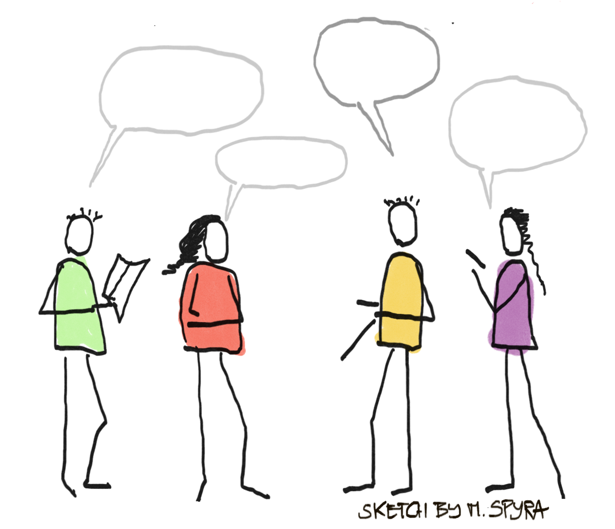
Exciting Keynote Speakers
Event "Spaces beyond our cities: health for humans, wealth for nature"
The RENATUR project ran from 1 Aug 2019 to 31 Jul 2023. We thank all partners and stakeholders for the good collaboration and valuable contributions!
Peri-urban landscapes are located at peripheral locations of cities, often beyond their administrative boundaries. Build-up areas, such as new housing estates, leisure and industrial areas, communal infrastructure as well as valuable peri-urban open spaces, such as green spaces, brownfields or agricultural fields, can also be found here.
Due to increasing urbanisation and investments beyond the city boundaries, these peri-urban open spaces are decreasing. With the decrease, the natural heritage of these open spaces and thus biodiversity, climate and air quality regulation as well as recreation services are lost.
The aim of RENATUR project is to draw attention to the importance of peri-urban open spaces and their natural heritage in order to preserve it. For this purpose, model regions were selected, which have a great interest in the promotion and protection of the natural heritage of the peri-urban open spaces in planning practice.
€1,516,546.00
Environment and resource efficiency
Through the exchange of experiences between the model regions, policy instruments, which promote green infrastructure and strengthen biological diversity, are improved. Furthermore, political actors and local citizens are involved in the process at an early stage in order to raise awareness about the significance of peri-urban open spaces for people and nature.
At first glance, the threat of urban sprawl in Saxony-Anhalt seems to be negligible. Nevertheless, land-use conflicts are also noticeably increasing. Functions like housing, commercial use, agriculture, energy production, exploitation of raw materials as well as the required infrastructure compete for land.
To view the problem of soil sealing in its entirety, a more holistic approach is necessary. Certainly, inner urban development and revitalization of brownfields are important instruments. Moreover, to make urban sprawl and land-use more sustainable, an early setting of political and planning co-operation beyond administrative borders are needed.
Overall aim of specific objective 11, ERDF OP Saxony-Anhalt 2014 – 2020, is the reduction of soil sealing with the focus of cities. With the compensation of urban deficits new land occupation should be avoid. Thus, the focus is on promotion of inner urban development and revitalization of brownfields.
The actual rules in the Act of Land Development foresees different public consultations, procedure rules (different steps, plans of real estate exchange, spatial implementation plans, advisory bodies) defined in section 5 of the Act, that aren’t flexible, but are time consuming.
To improve this, a new smother approach is needed in implementation of the policy instrument. In a shorter time period Flemish Land Agency (VLM) needs to develop effective solutions, to reorganize PUAs and keep them open, to exchange zoning, to adapt to climate change, to develop green-blue corridors, to develop sustainable business areas on the scarce space etc. This could be implemented through the exchange of land property and land use and reparcelling plots in PUAs combined with an exchange of designated uses determined in zoning plans (= Flemish destination plans). This can be realized by refurbishing the current legislation (make procedures shorter, easier, more flexible), to apply the system of accountable tradeable development rights and integrate it into section 5 of the addressed policy instrument. With these rights VLM will have the possibility to negotiate with all involved land users and real estate owners to reach a short time span solutions concerning to the reparceling with zoning exchange. The project should lead to the right policy recommendations for a more efficient implementation in exchange of real estate and for renewed, more sustainable land use zoning.
The National Operational Program for 2014-2020 integrates the strategic goals of Slovenia at both, sectoral and territorial levels. The project will address the priority 9 and its point 9.7. Community led development Implementing those priorities aims at better economic and social inclusion of society, with the measure related to the protection and improvement of environment (including natural heritage and landscape).
Due to the significant importancy of protection of biodiversity, NATURA 2000 and natural areas, the protection of PUOS natural heritage and its biodiversity is an important development challenge. Additionally, biodiversity in urban settlements and PULs should become an important asset, valued by local stakeholders. Especially we see that protection of the biodiversity in PUOS can contribute to the preservation of the Natura 2000 areas and other protected natural areas, which are already overcrowded with visitors.
The Regional Development Programme of Hajdú-Bihar County for 2014-2020 integrates the strategic goals of the county at both, sectoral and territorial levels. The objectives of the programme include 8 priorities. Within this project we plan to address priority 1: Sustainable environment focusing on Measure 1.2: Conservation of natural and landscape values of the county.
Due to the significant loss of biodiversity and the decrease of natural areas the importance of peri-urban landscapes clearly strengthens. There is a strong need to create an adequate ecological perspective concerning both, policymakers and the wider community. The addressed policy instrument encourages the development of Nature 2000 and other natural areas applying an integrated landscape management approach with specific focuses on biodiversity and the sustainability of ecosystems. It is also an essential objective to ensure an attracting and safe livelihood for citizens considering climate adaptation.
Beside the main aim of the policy instrument, an improved structural background is required with an appropriate approach, enhanced capacity and the potential to integrate better governance of ecosystem services to conserve biodiversity. Furthermore, new methodologies to efficiently implement the preservation and maintenance tasks are also needed.
Among the six investment priorities of Basque Country ERDF is Priority 06: Preserving & protecting the environment, and promoting resource efficiency, with a Specific Objective 6.4.1: "promote management, protection and maintenance of soil, natural sites in particular protected areas including measures to reduce erosion, salinity… in the investment priority."
This needs to be improved as for the biodiversity not to decline the whole territory has to be managed as a whole, not in particular the soil of protected areas, as the policy instrument is defined now. Thus, special focus has to be on peri-urban open spaces (PUOS) of bigger cities. In this way, there is a need for a new and innovative way of holistic governance which is based on the ecosystem services approach and biodiversity through a good design of green infrastructure that will guarantee the ecological connectivity in the territory. This holistic governance is not included in the policy instrument.
At regional level the partner will work with the local agents to implement actions in the peri-urban open spacesin order to halt the loss of biodiversity and improve the capacity of provision of ecosystem service approach in the territory, as stated in the PI6d. Working at a local level (Metropolitan Bilbao, that involves 50% of the population of the Basque Country, 2000 inhab/km2) with all the stakeholders, the partner will define policies in order to develop an holistic governance based on the ecosystem services approach and biodiversity that will guarantee the ecological connectivity in the region.
RPO Mazovia 2014-2020 is a programme implemented at the regional level as a strategic and executive tool of the European Cohesion Policy (2014-2020). As a vital part of the program, Mazovia developed integrated approach (ITI) to undertake economic, social and spatial interventions in voivodship cities and their active functional areas. The main goal is to improve the connection between the capital of Warsaw and its surrounding - 39 municipalities. The ITI includes projects in the field of transport, improving the environment, nature, energy efficiency support and economic promotion of the area. The management of the Mazowieckie voivodship allocated EUR 165 million for the implementation.
It is undeniable that the capital city of Warsaw is a major driving force for a region. Though, its strong ability to raise capital and resources decrease the chances of sustainable development for smaller municipalities in the region. Thus why RENATUR project should contribute to create mechanisms and develop patterns of management of peri-urban open spaces, leading to a change in a strategic focus of the policy instrument.

Event "Spaces beyond our cities: health for humans, wealth for nature"
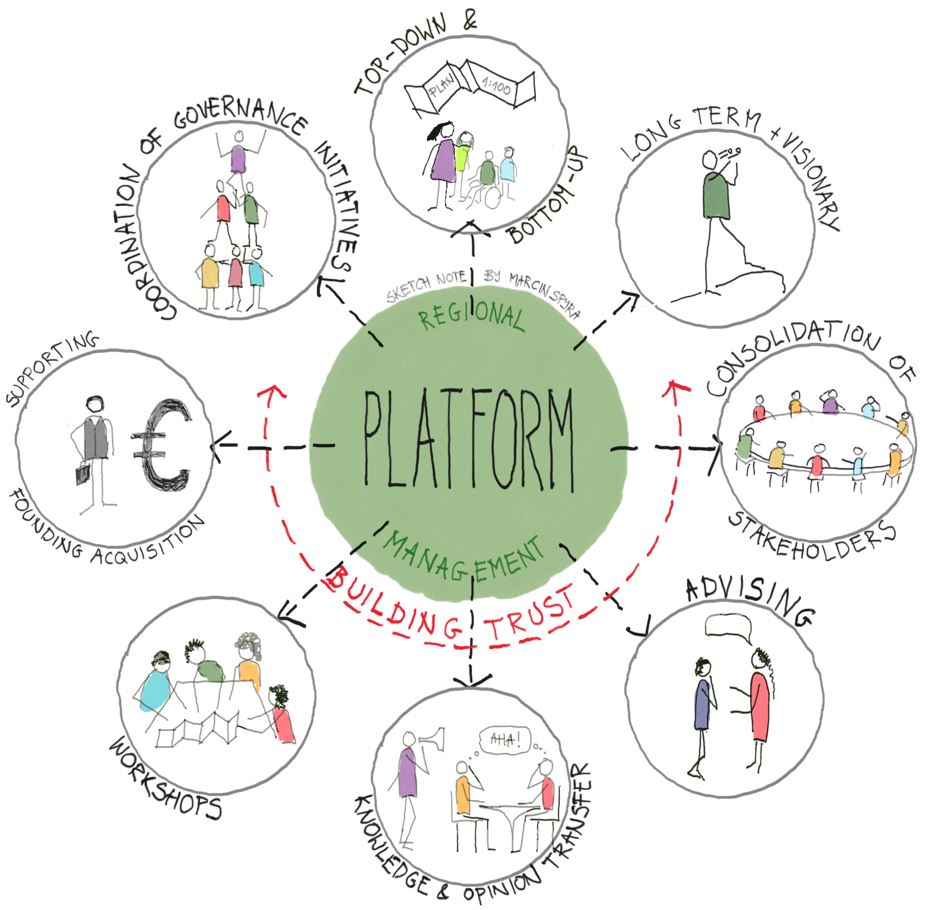
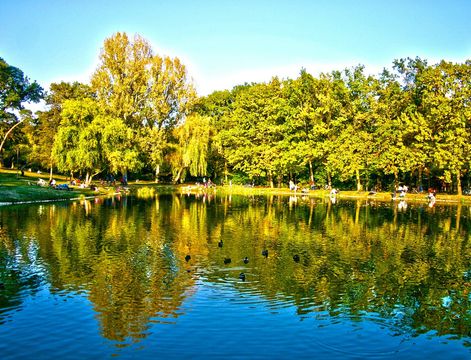
Mapping ecosystem services and understanding their roles and benefits for local citizens
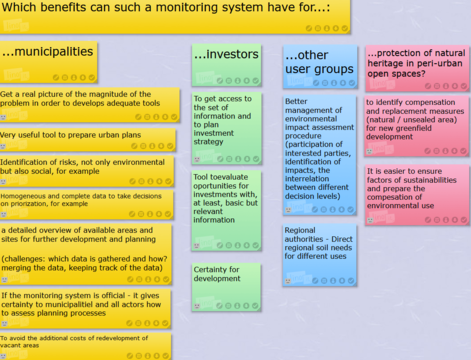
How can the revitalisation of inner-city brownfields help to protect peri-urban open spaces and their natural heritage? Find out more...
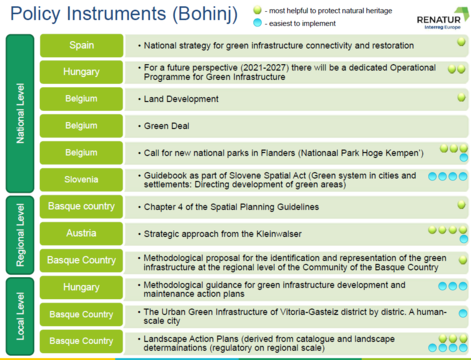
Results of discussions on governance of green infrastructure in peri-urban open spaces in Gorenjska Region are now available

RENATUR is treading new, digital paths...
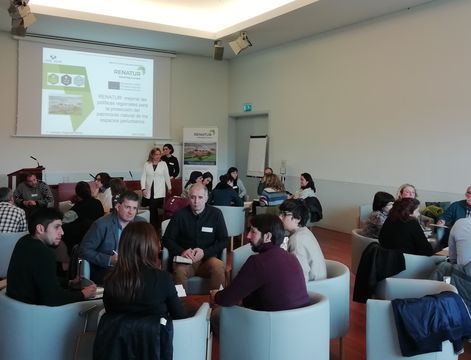
We are working with regional stakeholders to protect peri-urban open spaces. The 1st meeting was organized in Bilbao, by the University of Basque Country.
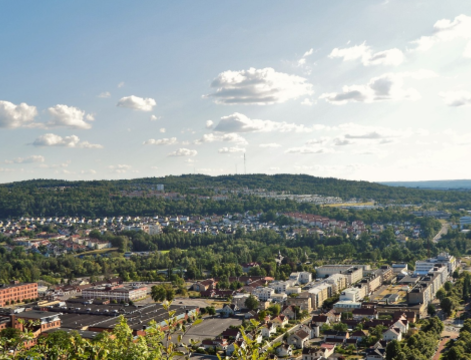
Check out our new brochure on RENATUR objectives, policy instruments, project partners, and ways to engage!
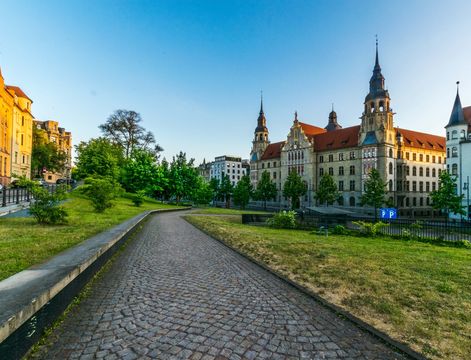
RENATUR in der Deutschen Presse: Der MDR berichtet über unser Projekt